Nadim Rss
أداري عام


::::[بيـانـات العضـو]::: :
مَُشَارِكآتي : 2460
ألعمــُـر : 35
نَقَّاطَيّ : 2913
سَمِعَتيََ : 13
ألقــسم ألمفــُضل : مواضيع Rss
دولـتـي : 
جـنســي : 
العمل : 
الهواية : 
المزاج : 

معلومات واضافات
Groups forum Nadim Love:
 |  موضوع: استراتيجية وعمل وأسلوب وحياة الشركة العملاقة غوغل Life At Google كل شيء عن غوغل موضوع: استراتيجية وعمل وأسلوب وحياة الشركة العملاقة غوغل Life At Google كل شيء عن غوغل  الأربعاء يناير 12, 2011 7:52 am الأربعاء يناير 12, 2011 7:52 am | |
| Google Poland is fast establishing a reputation as a centre of
excellence in defining world class engineering and customer management -
John Herlihy, VP Global Ad Operations & OSO EMEA, Google.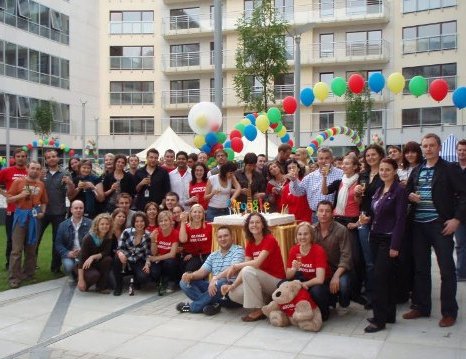
“Google is organized around the ability to attract and leverage the
talent of exceptional technologists and business people. We have been
lucky to recruit many creative, principled and hard-working stars.”
- Larry Page, Google Co-founder & President, Products
Stanford University
Google is not a conventional company, and we don’t intend to become one.
True, we share attributes with the world’s most successful organizations
– a focus on innovation and smart business practices comes to mind –
but even as we continue to grow, we’re committed to retaining a
small-company feel. 
At Google, we know that every employee has something important to say, and that every employee is integral to our success.
We provide individually-tailored compensation packages that can be
comprised of competitive salary, bonus, and equity components, along
with the opportunity to earn further financial bonuses and rewards.
Google has offices around the globe, from Bangalore to Zurich, but
regardless of where we are, we nurture an invigorating, positive
environment by hiring talented, local people who share our commitment to
creating search perfection and want to have a great time doing it.
Googlers thrive in small, focused teams and high-energy environments,
believe in the ability of technology to change the world, and are as
passionate about their lives as they are about their work.
We’re always on the look-out for new Googlers.
Take a look inside https://www.youtube.com/lifeatgoogle http://www.google.pl/intl/pl/jobs/li...gle/index.html
Let’s work together
At Google, we understand that our worldwide success results from our globally diverse workforce.
In every Google office, you will find challenging projects and smart people with potential to change the world. 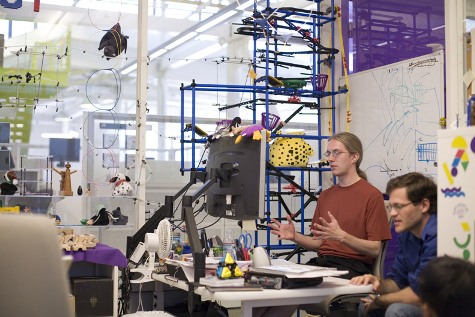
Googlers relish the freedom to create the next generation of web
technologies in an environment designed to foster collaboration,
creativity, health, and happiness. http://www.google.com/intl/en/jobs/index.html Top 10 Reasons to Work at Google
1. Lend a helping hand. With millions of visitors every month, Google
has become an essential part of everyday life – like a good friend –
connecting people with the information they need to live great lives.
2. Life is beautiful. Being a part of something that matters and working
on products in which you can believe is remarkably fulfilling.
3. Appreciation is the best motivation, so we’ve created a fun and
inspiring workspace you’ll be glad to be a part of, including on-site
doctor and dentist; massage and yoga; professional development
opportunities; shoreline running trails; and plenty of snacks to get you
through the day.
4. Work and play are not mutually exclusive. It is possible to code and pass the puck at the same time.
5. We love our employees, and we want them to know it. Google offers a
variety of benefits, including a choice of medical programs,
company-matched 401(k), stock options, maternity and paternity leave,
and much more.
6. Innovation is our bloodline. Even the best technology can be
improved. We see endless opportunity to create even more relevant, more
useful, and faster products for our users. Google is the technology
leader in organizing the world’s information.
7. Good company everywhere you look. Googlers range from former
neurosurgeons, CEOs, and U.S. puzzle champions to alligator wrestlers
and Marines. No matter what their backgrounds Googlers make for
interesting cube mates.
8. Uniting the world, one user at a time. People in every country and
every language use our products. As such we think, act, and work
globally – just our little contribution to making the world a better
place.
9. Boldly go where no one has gone before. There are hundreds of
challenges yet to solve. Your creative ideas matter here and are worth
exploring. You’ll have the opportunity to develop innovative new
products that millions of people will find useful.
10. There is such a thing as a free lunch after all. In fact we have them every day: healthy, yummy, and made with love. http://www.google.pl/intl/pl/jobs/li...enreasons.html Company Overview Our name
Founders Larry Page and Sergey Brin named the search engine they built
"Google," a play on the word "googol," the mathematical term for a 1
followed by 100 zeros. 
The name reflects the immense volume of information that exists, and the
scope of Google's mission: to organize the world's information and
make it universally accessible and useful. Search
When you visit www.google.com
or one of more than 150 other Google domains, you can find information
in many different languages (and translate between them), check stock
quotes and sports scores, find news headlines and look up the address
of your local post office or grocery store.
You can also find images, videos, maps, patents and much more. With
universal search technology, you can often find all of these things
combined in one query.
Of course, there is a lot of information in the world that is not yet
online, so we're also working to get more of it digitized, such as in
Google Books or the Google News Archive.
We also know that whenever you search the web you want it to be as fast
as possible, with all your favorite websites at your fingertips, so we
offer software like Google Toolbar and Google Chrome to help you browse
the web quickly and easily. 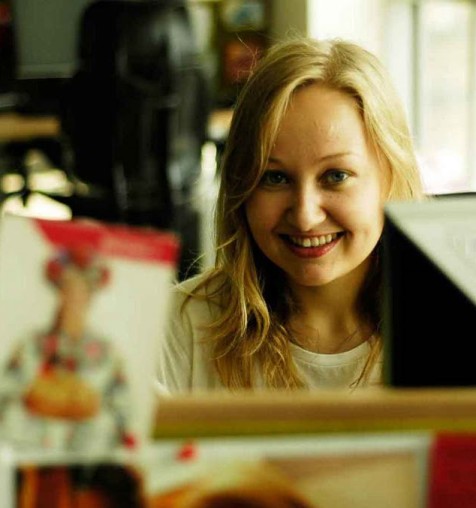
Search is how Google began, and it's at the heart of what we do today.
We devote more engineering time to search than to any other product at
Google, because we believe that search can always be improved.
We are constantly working to provide you with more relevant results so
that you find what you're looking for faster. To that end, we've added
services such as personalized search, which tailors results for you if
you are signed in to your Google account. Ads
As a business, Google generates the majority of its revenue by offering
advertisers measurable, cost-effective and highly relevant advertising,
so that the ads are useful to the people who see them as well as to
the advertisers who run them.
Hundreds of thousands of advertisers worldwide use our Google AdWords
program to promote their products and services on the web.
Advertisers bid in an open and competitive auction to have their ads
appear alongside the search results for particular keywords. They can
specify the geographic location and time of day for their ads to appear.
As a result, people see ads that are so useful and relevant that they
become a valuable form of information in their own right. 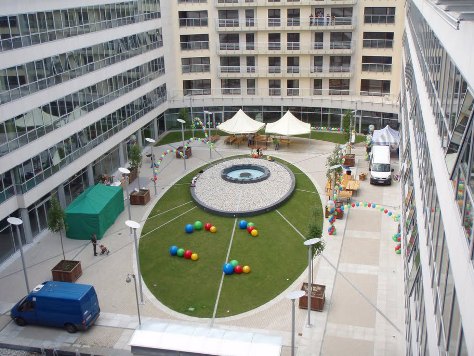
Since we believe you should know when someone has paid to put a message
in front of you, we distinguish ads from search results or other
content on a page by labeling them as "sponsored links" or "Ads by
Google".
We don't sell ad placement in our search results, nor do we allow people to pay for a higher ranking there.
In addition, hundreds of thousands of partners, from bloggers to major
online publishers, participate in our Google AdSense program.
This program delivers ads from our AdWords advertisers that are relevant to the content or search results on partner sites.
The AdSense program enables advertisers to extend the reach of their ad
campaigns, improves partners' ability to generate revenue from their
content, and delivers relevant ads for their users. 
In addition to our core AdWords and AdSense programs, we offer a number
of other services to advertisers, including various advertising
formats on YouTube, Google TV Ads, as well as online ad serving and
management services through DoubleClick.
Finally, we aim to make advertising more measurable and efficient with
free tools for advertisers such as Google Analytics, Website Optimizer,
Insights for Searchand Ad Planner. These tools help advertisers to
analyze their campaigns, test them, and make them more efficient and
effective. Apps
We build web applications, or "apps", to make it simpler for people to share information and get things done together.
Gmail, Google Calendar and Google Docs help people communicate and
collaborate more easily, whether planning a wedding or building a
business itinerary.
The information is stored securely online, accessible from any device
with a web connection. And because it lives online, it's easy to share
with a group of collaborators.
Everyone in the group can work on the same material at the same time,
even if they're working in different buildings, countries or continents.
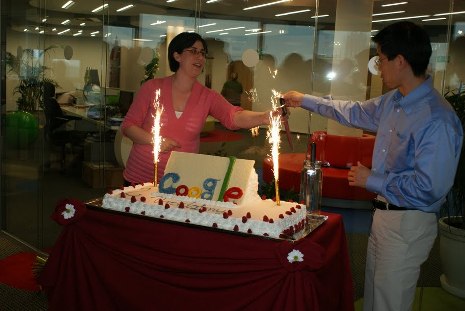
Today people want the same ease of use on their work computers that they
have on their increasingly powerful personal computers. This is why we
offer businesses a suite called Google Apps. It's powerful enough for
large enterprises (we use it across all of Google, in fact) but simple
enough for mom-and-pop businesses too.
We're continually improving Google Apps, so you always have the latest
version without worrying about maintenance or upgrades. And it's much
less expensive than most traditional software.
Google Apps is designed to fit the way people naturally live, work and
socialize, so they can focus on what they're doing rather than worrying
about maintaining the software.
We built Google Apps from the ground up for today's connected world.
Our infrastructure is designed to keep our users' data safe and secure and to make our apps fast and responsive.
We firmly believe that on the web, your data belongs to you, and should
be portable: when you use Google Apps, you can export your mail,
documents, photos or calendar entries whenever you like. Mobile
You should be able to access all of Google's services wherever you are – even if you don't have a computer nearby.
We make it easy for you to use your favorite Google products, from Google Maps to YouTube, right from your phone.
As mobile devices become increasingly central to people's lives, we work
hard to find new and better ways to help you get the information you
need when if you are on the go. 
We're also focused on enabling others to innovate in the mobile space.
Working closely with the Open Handset Alliance, we developed Android,
the world's first fully open platform that any mobile developer can use
and any hardware manufacturer can install on a device.
Android was built with the web in mind, and we believe that it will
help drive innovation so that more people can use better and cheaper
mobile devices to access the Internet. The road ahead
A lot has changed since the first Google search engine appeared.
We have grown and expanded our offerings from a single service to
dozens, often in as many languages. We now have thousands of employees
and offices around the world.
But some things haven't changed: our dedication to our users and our belief in the possibilities of the Internet itself. http://www.google.pl/intl/en/corporate/index.html Technology Overview
We stand alone in our focus on developing the "perfect search engine,"
defined by co-founder Larry Page as something that, "understands
exactly what you mean and gives you back exactly what you want."
To that end, we have persistently pursued innovation and refused to accept the limitations of existing models.
As a result, we developed our serving infrastructure and breakthrough
PageRank™ technology that changed the way searches are conducted.
From the beginning, our developers recognized that providing the
fastest, most accurate results required a new kind of server setup.
Whereas most search engines ran off a handful of large servers that
often slowed under peak loads, ours employed linked PCs to quickly find
each query's answer.
The innovation paid off in faster response times, greater scalability
and lower costs. It's an idea that others have since copied, while we
have continued to refine our back-end technology to make it even more
efficient.
The software behind our search technology conducts a series of
simultaneous calculations requiring only a fraction of a second.
Traditional search engines rely heavily on how often a word appears on a web page.
We use more than 200 signals, including our patented PageRank™
algorithm, to examine the entire link structure of the web and
determine which pages are most important.
We then conduct hypertext-matching analysis to determine which pages are relevant to the specific search being conducted.
By combining overall importance and query-specific relevance, we're able to put the most relevant and reliable results first. PageRank Technology:
PageRank reflects our view of the importance of web pages by considering more than 500 million variables and 2 billion terms.
Pages that we believe are important pages receive a higher PageRank and
are more likely to appear at the top of the search results.
PageRank also considers the importance of each page that casts a vote,
as votes from some pages are considered to have greater value, thus
giving the linked page greater value.
We have always taken a pragmatic approach to help improve search quality
and create useful products, and our technology uses the collective
intelligence of the web to determine a page's importance. Hypertext-Matching Analysis:
Our search engine also analyzes page content. However, instead of simply
scanning for page-based text (which can be manipulated by site
publishers through meta-tags), our technology analyzes the full content
of a page and factors in fonts, subdivisions and the precise location
of each word.
We also analyze the content of neighboring web pages to ensure the results returned are the most relevant to a user's query.
Our innovations don't stop at the desktop. To give people access to the
information they need, whenever and wherever they need it, we continue
to develop new mobile applications and services that are more
accessible and customizable. And we're partnering with industry-leading
carriers and device manufacturers to deliver these innovative services
globally.
We're working with many of these industry leaders through the Open
Handset Alliance to develop Android, the first complete, open, and free
mobile platform, which will offer people a less expensive and better
mobile experience. Life of a Google Query
The life span of a Google query normally lasts less than half a second,
yet involves a number of different steps that must be completed before
results can be delivered to a person seeking information.  What's it like to work in Poland? What's it like to work in Poland?
“Google Poland is fast establishing a reputation as a centre of
excellence in defining world class engineering and customer management.”
- John Herlihy, VP Global Ad Operations & OSO EMEA Wroclaw
Google’s utility and ease of use have made it one of the world’s
best-known brands almost entirely through word of mouth from satisfied
users.
As a business, Google generates revenue by providing advertisers with
the opportunity to deliver measurable, cost-effective online advertising
that is relevant to the information displayed on any given page. 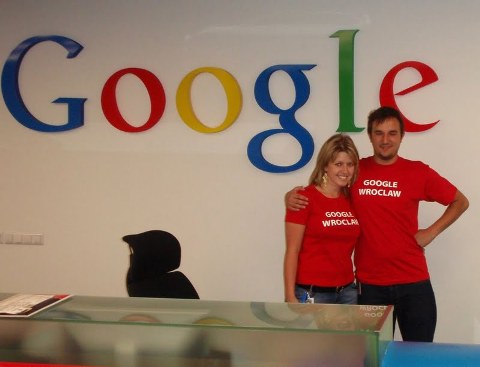
The new office in Wroclaw contributes to Google’s presence in EMEA and more effectively supports our users.
We hope it will evolve into a "centre of excellence" for Google users, advertisers, and publishers alike. Krakow
The Krakow Engineering Centre opened in early 2007, and within a year
it became the third-largest Google engineering site in the region.
Both Google offices in Krakow are located in the center of Krakow (5 minutes’ walk between them).
A majority of the engineers bike to work – on average, it takes them just 10–15 minutes.
We do not have a specific product focus, but engineers based in Krakow
are working with solutions on a global scale, ranging from
infrastructure to mobile, to maps, Blogger to YouTube.
In addition to these global projects, Krakow is home to our
Czech/Slovak Team, which deliver Google products to the Czech and
Slovak markets.
In mid-2008, there were 60 engineers from 17 different countries working
in the Krakow Engineering Centre, with employees ranging from new
grads to people with 30+ years of experience in software development. Warsaw
Google’s Warsaw office opened in 2005 and currently hosts several teams
focused on marketing, sales, public relations, and operations.
Team members are working hard on identifying, negotiating, closing, and
managing revenue-generating relationships with major players in web,
wireless, and media technologies.
We're looking to hire creative and flexible high achievers to put their
considerable talents to work in a team-oriented environment – sharing a
commitment to provide the highest level of service to our growing base
of partners, users, and advertisers in Central and Eastern Europe. http://www.google.pl/intl/pl/jobs/li...ogle/meet.html Poland office photos http://picasaweb.google.com/photos.j...dOfficePhotos# John Herlihy
Vice President, Global Ad Operations & OSO EMEA 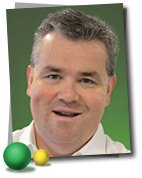
As vice president of Global Ad Operations, John drives Google's online
advertising operations and support globally by providing small business
solutions to advertisers.
Based at our EMEA (Europe, Middle East and Africa) headquarters in Dublin, with teams across the globe.
John joined Google in 2005 and built its online sales and operations channels in new and existing markets across EMEA.
Previously, John held senior management positions at several global
technology companies including First Data, PeopleSoft, Adobe Systems,
Inc. and Oracle Corporation.
John began his career as a Chartered Accountant at global accountancy
practice KPMG in its Dublin office, before relocating to the U.S. in
1993.
He holds a Bachelor of Commerce (Honours) from University College Dublin and is a Qualified Chartered Accountant. http://www.google.pl/intl/en/corpora...s.html#herlihy Larry Page
Co-Founder & President, Products 
Larry Page was Google's founding CEO and grew the company to more than
200 employees and profitability before moving into his role as president
of products in April 2001.
He continues to share responsibility for Google's day-to-day operations with Eric Schmidt and Sergey Brin.
The son of Michigan State University computer science professor Dr. Carl
Victor Page, Larry's love of computers began at age six.
While following in his father's footsteps in academics, he became an
honors graduate from the University of Michigan, where he earned a
bachelor's degree in engineering, with a concentration on computer
engineering.
During his time in Ann Arbor, Larry built an inkjet printer out of Lego™ bricks.
While in the Ph.D. program in computer science at Stanford University,
Larry met Sergey Brin, and together they developed and ran Google, which
began operating in 1998.
Larry went on leave from Stanford after earning his master's degree.
In 2002, Larry was named a World Economic Forum Global Leader for Tomorrow.
He is a member of the National Advisory Committee (NAC) of the
University of Michigan College of Engineering, and together with
co-founder Sergey Brin, Larry was honored with the Marconi Prize in
2004.
He is a trustee on the board of the X PRIZE, and was elected to the National Academy of Engineering in 2004. Sergey Brin
Co-Founder & President, Technology 
Sergey Brin, a native of Moscow, received a bachelor of science degree
with honors in mathematics and computer science from the University of
Maryland at College Park.
He is currently on leave from the Ph.D. program in computer science at
Stanford University, where he received his master's degree.
Sergey is a recipient of a National Science Foundation Graduate
Fellowship as well as an honorary MBA from Instituto de Empresa. It was
at Stanford where he met Larry Page and worked on the project that
became Google.
Together they founded Google Inc. in 1998, and Sergey continues to share
responsibility for day-to-day operations with Larry Page and Eric
Schmidt.
Sergey's research interests include search engines, information
extraction from unstructured sources, and data mining of large text
collections and scientific data.
He has published more than a dozen academic papers, including Extracting
Patterns and Relations from the World Wide Web; Dynamic Data Mining: A
New Architecture for Data with High Dimensionality, which he published
with Larry Page; Scalable Techniques for Mining Casual Structures;
Dynamic Itemset Counting and Implication Rules for Market Basket Data;
and Beyond Market Baskets: Generalizing Association Rules to
Correlations.
Sergey has been a featured speaker at several international academic,
business and technology forums, including the World Economic Forum and
the Technology, Entertainment and Design Conference.
He has shared his views on the technology industry and the future of
search on the Charlie Rose Show, CNBC, and CNNfn. In 2004, he and Larry
Page were named "Persons of the Week" by ABC World News Tonight. http://www.google.pl/intl/en/corporate/execs.html Eric Schmidt
Chairman of the Board and Chief Executive Officer 
Since joining Google in 2001, Eric Schmidt has helped grow the company from a Silicon Valley startup to a global enterprise.
Under his leadership, Google has dramatically scaled its infrastructure
and broadened its offerings while maintaining a culture of strong
innovation.
His background uniquely prepares him to lead Google's efforts toward technological solutions that focus on users.
With founders Sergey Brin and Larry Page, and the rest of the executive
team, Eric oversees the company's technical and business strategy.
Prior to joining Google, Eric was the Chairman and CEO of Novell and
Chief Technology Officer at Sun Microsystems, Inc., where he led the
development of Java, Sun's platform-independent programming technology.
Earlier in his career, Eric was a member of the research staff at Xerox
Palo Alto Research Center (PARC) and held positions at Bell
Laboratories and Zilog.
He holds a bachelor's degree in electrical engineering from Princeton
University as well as a master's and Ph.D. in computer science from the
University of California, Berkeley.
Eric is a member of President Obama's Council of Advisors on Science and Technology.
He was elected to the National Academy of Engineering in 2006 and
inducted into the American Academy of Arts and Sciences as a fellow in
2007.
Eric also chairs the board of the New America Foundationموقع،منتدى،شرح،بالصور،طريقه،كيفيه،عمل،تصميم،خريطه،ارشفه،تقويه،تفعيل،خلال،البيج،رانك،الباك،لينك،الروابط،الخارجيه،الداخليه،ارسال،عضو،زائر،زوار،الاف،طرق،اقوى،افضل،اجمد،احسنجلب،رفع،اسباب،سبب،بنج،محرك،بحث،تراجع،نقص،المواضيع،محركات،البحث،قوقل،ياهو،ام ،اس،ان،ماسنجر،هوتميلفيسبوك،تويتر،اليمن،السعوديه،مصر،مدونه،التغذيه،نشر،اشهار،كيف،ماهو،المفتاحيه،لينك،رابط،الميتاج،موقعي،على،Site, forum, explain, pictures, the way, how to, business, design, map, archive, enhance, activate, through, Beige, PR, Pak, Linksys, links, Foreign Affairs, Interior, send, member, visitor, visitors, thousands, of ways, stronger, better, Ajmd, the bestBring, lift, reasons, reason, decline, shortages, themes, engines, search, google, yahoo, M, S, said, Messenger, HotmailFacebook, Twitter, Yemen, Saudi Arabia, Egypt, Blog, Nutrition, publishing, publicity, my, on,شرح تعلم الارشفه الاحترافيه روبوتس Robots | الميتا تاج meta tag | كلمات البحث Tags نديم ، الحب ، برنامج ، تحميل ، دليل ، مسلسل ، انشوده ، جديد ، كامل   | |
|



















 موضوع: استراتيجية وعمل وأسلوب وحياة الشركة العملاقة غوغل Life At Google كل شيء عن غوغل
موضوع: استراتيجية وعمل وأسلوب وحياة الشركة العملاقة غوغل Life At Google كل شيء عن غوغل 




















